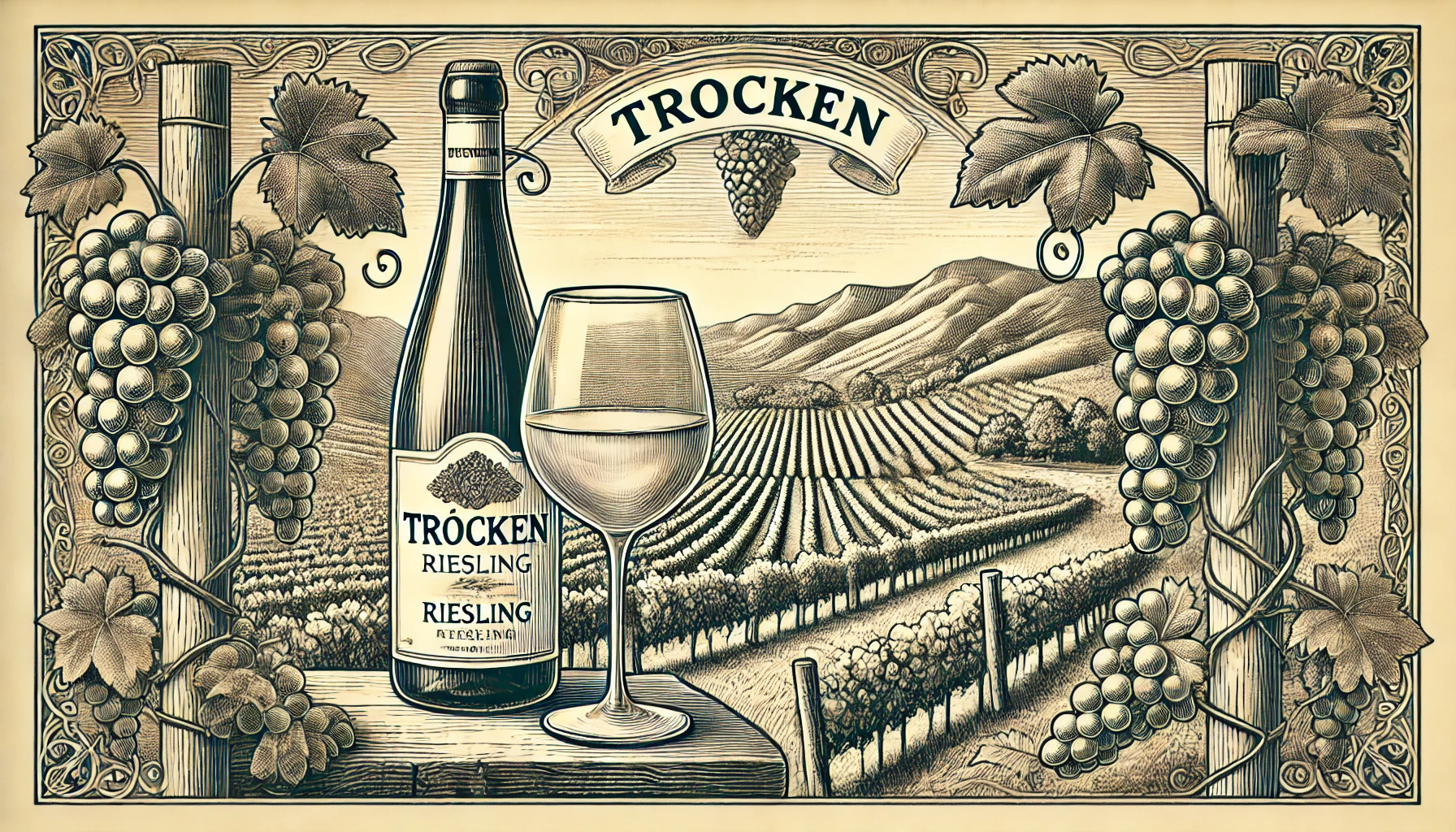
Trocken means “dry” in German. Winemakers use this term to describe wines with very little or no residual sugar. It’s common on labels for German wines, especially Rieslings. When you see Trocken, expect a wine that tastes crisp and refreshing rather than sweet.
German wine laws define how dry the wine can be. The wine should have no more than 9 grams of residual sugar per liter. However, if acidity levels are high, winemakers can balance a little more sugar. This balance ensures the wine remains dry but not overly sharp.
Trocken wines come in many styles. Rieslings often feature bright acidity with notes of green apple and citrus. You might also find Trocken labels on Silvaner, Pinot Blanc (Weissburgunder), and Pinot Gris (Grauburgunder). Each grape variety brings its own unique character while maintaining a dry profile.
The dry style appeals to those who enjoy wines that refresh the palate. It pairs well with many dishes, like seafood, white meats, and salads. Dry Rieslings, for example, complement spicy Asian cuisine with their zesty freshness.
Not all German wines labeled as dry use the term Trocken. Some producers prefer using terms like Classic or Selection. However, Trocken remains a clear and direct indication of dryness. It’s a helpful term for wine enthusiasts navigating Germany’s complex labeling system.
Whether enjoying a chilled glass on a summer day or pairing it with dinner, Trocken wines offer versatility. They allow the pure expression of the grape to shine through without the distraction of sweetness.
Neugierig auf weitere Weintermini und spannende Einblicke? Besuchen Sie unseren Wine Wiki Bereich und entdecken Sie grundlegende Weinbegriffe sowie Expertentipps!